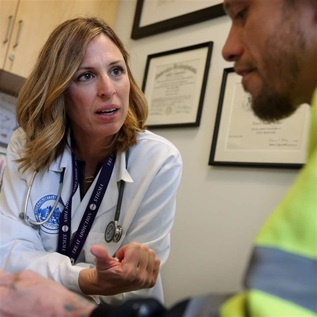Mental Health Awareness Month | Week 3


Article
May 1, 2024
"It's My Story and I'm Not Ashamed of It."


Article
April 29, 2024
Bipartisan Agreement: Leaders Are Prioritizing Mental Health


Video
April 11, 2023
High School Basketball Star Plays Defense Against Depression


Article
August 29, 2022
From Stigma to Stability: A Doctor and Advocate Discuss


Podcast
October 14, 2022
A stable dose [of methadone] for me meant finding balance in my mental health that I was not able to find [without it].
People in America have long grappled with mental health conditions and substance use, and for many individuals, the COVID-19 pandemic exacerbated these issues. The numbers are stark: In 2021, nearly 1 in 4 adults had a mental illness; nearly 1 in 3 adults had a substance use disorder or mental illness; and more than 12 million adults had serious thoughts of suicide.
The Pew Charitable Trusts conducts research and supports policies to improve behavioral health in America, including increasing access to medications for opioid use disorder, making suicide screening a routine part of health care delivery, and improving crisis care in communities so people in distress can have access to health-focused treatment instead of the first response coming from law enforcement.
Mental Health Awareness Month | Week 3


Article
May 1, 2024
"It's My Story and I'm Not Ashamed of It."


Article
April 29, 2024
Bipartisan Agreement: Leaders Are Prioritizing Mental Health


Video
April 11, 2023
High School Basketball Star Plays Defense Against Depression


Article
August 29, 2022
From Stigma to Stability: A Doctor and Advocate Discuss


Podcast
October 14, 2022
















